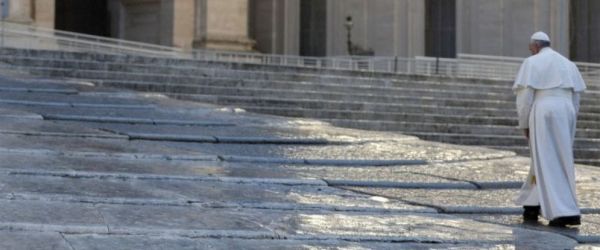When it is said of someone that they are a person with a double life, it is not to pay them a compliment. On the contrary. It is those people who irritate, cause indignation, or often even disgust with behaviour that contradicts the things that they are paying lip service to. Whether it is a politician or a neighbour makes little difference: discovering, so to speak, a 'double life', is something that always hurts. And let us not mention the disillusionment it can generate, especially in young people.
But if preaching well and braying badly is always an irritating thing, when it is a priest doing it, it is even more intolerable. Because there is something more at stake. Pope Francis said it very clearly, and as always in a very direct and effective style, a few days ago. When, in the homily of the morning Mass at Santa Marta, he stressed how "it is ugly to see pastors of double life", indeed it is a real "wound in the Church". For the Pope, they are "sick pastors, who have lost their authority and go on in this double life"; and, he added, "there are many ways of carrying on the double life: but it is double ... And Jesus is very strong with them. Not only does he tell people not to listen to them but not to do what they do, but what does he say to them? "You are whited sepulchres": beautiful in doctrine, from the outside. But inside, rottenness. This is the end of the pastor who has no closeness with God in prayer and with people in compassion'.
For it is this that makes the difference. Francis reiterates it firmly: 'What gives a pastor authority or awakens the authority that is given by the Father, is closeness: closeness to God in prayer and closeness to people. The pastor detached from the people does not reach the people with the message. Closeness, this double closeness. This is the anointing of the pastor who is moved by God's gift in prayer, and can be moved by people's sins, problems, illnesses: let the pastor be moved. The scribes ... had lost the 'ability' to be moved precisely because 'they were not close either to the people or to God'". And without this closeness, or when for whatever reason it is lost, 'the shepherd ends up in inconsistency of life'.
It seems like re-reading the words that John Paul II, in his Holy Thursday letter addressed to priests around the world in 1986, dedicated to the Holy Curate of Ars, pointing to him, on the second centenary of his birth, as an example for all priests. 'It is certainly not a matter of forgetting,' wrote Benedict XVI, again on St John Mary Vianney, in his letter of indiction for the 2009 Year for Priests, 'that the substantial effectiveness of the ministry remains independent of the holiness of the minister; but neither can we overlook the extraordinary fruitfulness generated by the encounter between the objective holiness of the ministry and the subjective holiness of the minister. The Curé d'Ars immediately began this humble and patient work of harmonisation between his life as a minister and the holiness of the ministry entrusted to him, deciding to 'live' even materially in his parish church: 'As soon as he arrived, he chose the church as his dwelling... He would enter the church before dawn and only leave it after the evening Angelus. There one had to look for him when one needed him,' reads the first biography'. Consistency, then. Not duplicity. Because God's people need everything except whitewashed sepulchres.
[Pope Francis, St. Martha; Salvatore Mazza in Avvenire 13 January 2018]












